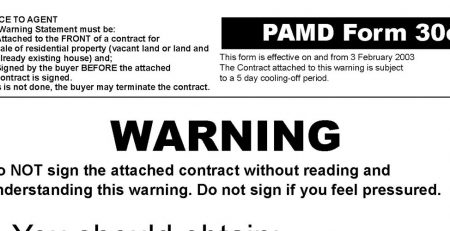When Buying Off The Plan Doesn’t Go To Plan
When Buying off the plan doesn’t go to plan – changes to my disclosure statement, can I terminate?
Choosing to buy a property off the plan means you are entering into a contract before the construction has been completed or commenced. Changes in market conditions or other changes during construction can mean things don’t always go as planned.
Difference between buying off the plan and a standard contract for sale
Most standard contracts of sale settle in thirty to sixty days. Buying off the plan can take several years for settlement to occur. Due to the timeframe and because you can’t physically inspect the property, an off the plan contract will typically contain:
- A Contract of Sale;
- A Disclosure statement.
Unlike normal contracts, off the plan contracts will also include special provisions written by the seller. These account for any contingencies between when you sign the contract and the settlement date such as delays or changes in construction. Be aware that each seller will have a different set of conditions in their contract. It is recommended you seek legal advice on your off the plan contract before signing.
What is a Disclosure statement?
Because you can’t physically inspect the property (usually not constructed at the time of purchase), there are additional legislative requirements to protect the buyer. At law, the seller must provide a disclosure plan and disclosure statement with the contract of sale. There are specific requirements on what is contained in the disclosure statement, such as identifying the proposed lot to be purchased.[1]
Once each party signs the disclosure statement and contract for sale, they are legally bound by its obligations. Parties are entitled to rely on the information contained in the disclosure statement and plan.[2]
Changes occur during construction? – This isn’t what I was promised
Sometimes unforeseen changes occur during the construction stage, for example a statutory authority imposing development conditions. If changes occur to the original plan making the first disclosure statement inaccurate, the sellers must provide the buyer with an updated disclosure statement stating the inaccuracy and changes. This must be provided at least 21 days before settlement.[3]
Depending on the type of change, you may be able to terminate the contract by written notice to the seller. You only have a right to terminate if you are materially prejudiced by the change.[4] This means showing that you have been disadvantaged in a substantial way by the particular circumstances.[5]
Prejudiced
Determining if a buyer is materially prejudiced is not as straight forward as you think. The focus is on the buyer’s particular circumstances. This means, just because one person in a development may be materially prejudiced, doesn’t mean each other buyer will automatically be as well.
Two examples include:
- Removal of CCTV security system
In 2007, Ms Wilson purchased a lot in a staged development called Tennyson Reach.[6] The developer issued a further disclosure statement with a number of changes to the development due to changes in market value resulting in a cut in costs. One of these changes was the removal of CCTV security equipment. The court held that the security system was promoted in the original disclosure statement and was an integral feature of the development. Ms Wilson relied on the security as an important part of development and making her decision to buy off the plan. The court held, Ms Wilson did validly terminate her off the plan contract on the basis she was disadvantaged in a substantial way by the removal of the security equipment.
- From a long term to short term residential development
Termination of the sale cannot occur just because of disappointment of expectations from brochures, they must be based on what has been promised in the contract and disclosure statement.
Cases
In Gough & v South Sky Investments Pty Ltd[7], multiple plaintiffs purchased off the plan apartments described as The Oracle situated at the Gold Coast. The initial marketing of the development focused on a high-quality, luxury, residential development. Prior to settlement, the developer issued a further disclosure statement renaming the residential development to Peppers Broadbeach, focussing on short term stays and hotel-like services. The plaintiff’s argued they were materially prejudiced because the development was no longer a residential development but a hotel and resort. The court found that the plaintiffs did have disappointed expectations, but these expectations were not based on the core documents of the contract and disclosure statement. Neither documents contained protections in relation to the kind of residential development that would be built.
If you are looking at purchasing off the plan, we recommend you let us review your contract by getting in touch with Olsen Lawyers on (07) 3846 5288.
Please note that this information is general in nature and you should contact us to discuss before acting upon same. Information current at 18 June 2019.
[1] –Body Corporate and Community Management Act 1997 (Qld), s 213.
[2] Body Corporate and Community Management Act 1997 (Qld), s 216.
[3] Gen Body Corporate and Community Management Act 1997 (Qld), s 214.
[4] Body Corporate and Community Management Act 1997 (Qld), s 217.
[5] Wilson v Mirvac Queensland Pty Ltd [2010] QSC 87.
[6] Wilson v Mirvac Queensland Pty Ltd [2010] QSC 87, [39].
[7] [2012] QCA 161.












